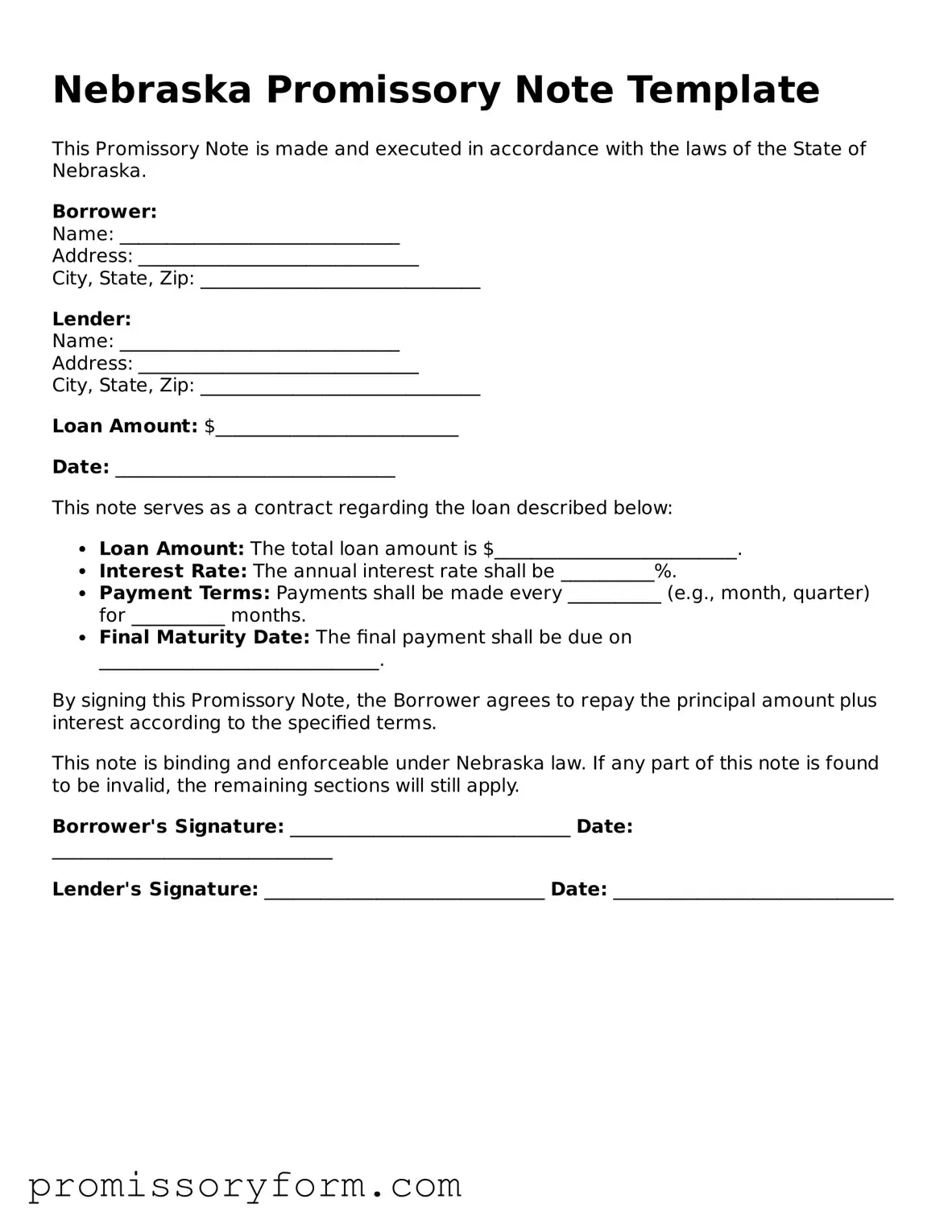Key takeaways
When it comes to filling out and using the Nebraska Promissory Note form, there are several important points to keep in mind. Here’s a concise list of key takeaways:
- Ensure all parties involved are clearly identified. This includes the lender and the borrower.
- Specify the loan amount in clear terms. Write the amount in both numbers and words to avoid confusion.
- Detail the interest rate. Make sure it complies with Nebraska state laws to avoid any legal issues.
- Outline the repayment schedule. Include specific dates and amounts for each payment to provide clarity.
- Include any late fees or penalties for missed payments. This helps set expectations for both parties.
- Sign and date the document. Both the borrower and lender should sign to make the agreement legally binding.
- Consider having the document notarized. This adds an extra layer of verification and can be beneficial if disputes arise.
- Keep a copy of the signed note for your records. This is essential for tracking payments and for future reference.
